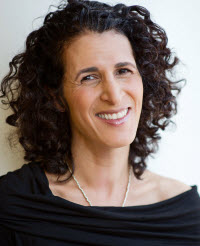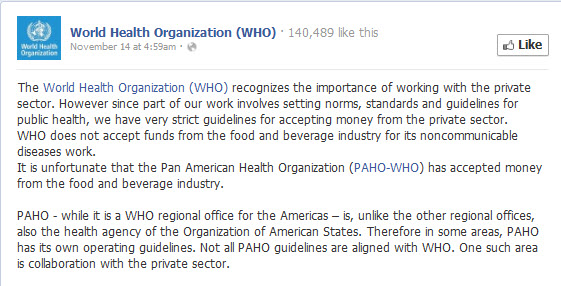Choosing to take time off of your career to be with your kids when they are young can have a big impact on your career opportunities. Most parents I know wouldn't give it up for the world, but that doesn't mean that finding your way back into the job market is always seamless, even if you kept working part-time or going to school during those years. After a long search, my partner will be starting a new job this January. His challenge finding a job after being a stay-at-home-dad and graduate student for many years is not unique. Today, I'd like to welcome my friend Holly from The Culture Mom to share her story of balance her career and her children and finding her way.
What about me?
51% to 44%, women in the U.S. are more likely to say that, if free to do either, they would rather have a job outside the home than "stay at home and take care of the house and family." Women's preferences for working outside the home have been consistent in Gallup polling since 2007, and were also evident in 2001; however, at other times in the not-too-distant past -- 1992, 2003, and 2005 -- the majority of women favored the domestic role. – Gallup.com
When my daughter was born 9-1/2 years ago, I looked forward to maternity leave. After working for nearly 13 years, I thought it would be nice to be home to get to know my new child and orientate myself to motherhood. As the days neared, I thought about the things I wanted to do with her and was eager to take some time off work.
Work at my publishing job gave me a surprise shower before I left to take my leave. They showered me with gifts and offers of good luck with my soon to be newborn. I’ll never forget my mentor pulling me aside and whispering in my ear: “You’re one of the best marketers I’ve ever worked with during my entire career.” One of my fellow colleagues had recently left after having a baby and I suppose he wondered if I would do the same. I left my job looking forward to my new chapter. I knew I’d be back, at this job that loved and revered a few short months later, and his words stayed with me until the baby was born.
And then she arrived, and my heart was torn, and I guess I forgot what he said. I knew my time was limited at home. I breastfed “on demand” and was all of a sudden more needed by anyone that I’d ever been in my life. She and I spent our days getting to know each other and I lovingly fumbled my way through the early days of motherhood.
Then my time was up. I hired a babysitter and headed back to work. When I got there, I was granted the first real office I’d ever had with my name on a plate outside the door. I put a photo of my daughter in a frame by my desk, pumped my milk and took the 1-1/2 hour commute back and forth from work for as long as I could.
But I didn’t last long. The tri state black out hit NY during my first week back and it immediately put me in the mindset that I would quit my job and take some time off. I’d go back to work when I was ready, with no problem.
What was I thinking? Within a year, I had another child and wanted to go back to work when he was about one. With two babies crying, I knew I’d be a better mother with time away from home. I craved independence and stimulation.
A colleague had provided me with a contact in publishing on my last day at work, and sure enough they offered me a job immediately. It was a part-time situation that worked out perfectly. I had the best of both worlds. My colleagues resented me for working less than they did, but I ignored it. I did my work and thought I’d achieved balance between my two worlds.
That job lasted three years. It was the same kind of work I’d been doing before I had a baby and it led to several more freelance positions after that…many that have been long term. There has hardly been a gap on my resume since I left the work force. I’ve never stopped working, but I’ve worked part-time for the last eight years and my resume is a bit clunky. I’ve worked in the office, out of the office and at Starbucks. I haven’t missed a beat with the kid’s activities. I’ve been there for everything, and now I’m ready to go back to work fulltime. Working part-time isn’t a cup of tea. I’m always the first to be let go, the first for my hours to be cut, the first to put in more hours and not get paid for my extra time, the first to jump when the boss needs something. I’ve had to prove myself time and time again to these companies, but for what? At the end of the day, how truly marketable am I? I’ve advanced my skills. I’m more efficient than I’ve ever been. How could I not be? I’ve juggled conference calls, school pick-ups and deadlines all at the same time. But have I advanced my career? Without being fulltime and able to climb the same ladder as my colleagues, I think not.
So, what about me? I’m young, I have many years left to work in this world and I yearn for the kind of passion I had at the job I gave up eight years ago. I crave interaction and work with like-minded professionals in an office. I have no gap on my resume, really, but I do have a number of part-time jobs that have led to a dead end.
I don’t choose my kids over my career, I want both. I’ve tried to have both but I’m not sure where it has gotten me. I’m ready to go back fully committed to an office job.
But where do I start? Who will hire me?

Born in Atlanta, Georgia, Holly Rosen Fink has spent the last 17 years in NYC working in all facets of media, from MTV and Lifetime Television to the world of traditional and online publishing. Now working as a Marketing Consultant, she blogs about travel, theater, film, art, books, advocacy and more at The Culture Mom. She is also a partner at MamaDrama, a social media boutique specializing in culture and advocacy.
 Wednesday, December 5, 2012
Wednesday, December 5, 2012 






















 Would these companies really give money to PAHO if they didn't think those funds would buy them some influence? It is highly doubtful.
Would these companies really give money to PAHO if they didn't think those funds would buy them some influence? It is highly doubtful.